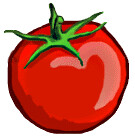I am what I eat -- Part II
 A couple of weeks ago, I posted on the horrifying (and ongoing) story of the Agriprocessors kosher meat plant in Postville, Iowa. Since then, the Uri L'Tzedek boycott against the Rubashkins was lifted due to a feeling that the federal compliance officer assigned to the plant was getting the labor practices into the shape they needed to be. In theory, I should have felt better, but still I was uneasy about the whole business. I wondered if other kosher meat plants were going undetected in their equally scary labor practices and if, though the official boycott had been lifted, I would ever be willing to buy Rubashkin's meat again. After yesterday's editorial in the New York Times, I feel justified in my remaining queasiness.
A couple of weeks ago, I posted on the horrifying (and ongoing) story of the Agriprocessors kosher meat plant in Postville, Iowa. Since then, the Uri L'Tzedek boycott against the Rubashkins was lifted due to a feeling that the federal compliance officer assigned to the plant was getting the labor practices into the shape they needed to be. In theory, I should have felt better, but still I was uneasy about the whole business. I wondered if other kosher meat plants were going undetected in their equally scary labor practices and if, though the official boycott had been lifted, I would ever be willing to buy Rubashkin's meat again. After yesterday's editorial in the New York Times, I feel justified in my remaining queasiness.
So how is a person supposed to eat? Lucky for me, the Times Magazine had a profile feature yesterday about the women who are the vanguard of new farming in the Northeast. I am so inspired by the way these women have transformed their ideals about food, food culture, and sustainable living into their real lives. It's a breath of fresh air after reading about the abuses in Postville, and I am not surprised to know that it is women who are the front line innovators in this movement.
I don't know that a single one of the women profiled here is Jewish. But I can't help but think that collecting wild edibles, raising cows and chickens outdoors to produce the highest quality dairy and eggs, and farming vegetables bio-dynamically is an authentically Jewish way to interact with the Earth and with our food. Certainly it's more kosher than hiring underage laborers and turning a blind eye as illegal immigrants are arrested for using false Social Security numbers to get work in your plant.






Great posts Lily, this last one made me think about an NPR story I heard a few weeks ago about a group of Muslim families coming together to create an eco-halal meat co-op. Here's the link to the story: http://www.npr.org/templates/s...